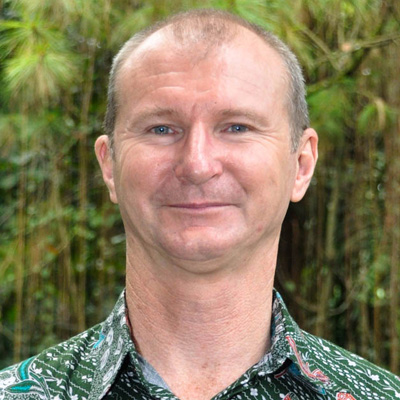It’s time for individually determined contributions to reducing emissions
The director-general of World Agroforestry (ICRAF) introduces the Global Landscapes Forum in New York City with a call for immediate action at all levels.
Director-General Tony Simons of World Agroforestry (ICRAF) in his opening speech to the Global Landscapes Forum noted that we had 500 years of disruption, degradation and destruction to reverse in ten years.
‘We have to race, with Nature, not against it’, he said. ‘We have to make this UN Decade of Restoration work, together, now’.
Simons reminded the 800 participants and 2.9 million following online, that the Paris Agreement brought the world Intended Nationally Determined Contributions, that is, what countries intended to do to reduce greenhouse-gas emissions, which later matured to just Nationally Determined Contributions as countries began to deliver on their intentions.
‘And now maybe we need IDCs?’ he asked. ‘“I” stands for “Individual”. How can we as individuals help reverse the degradation and destruction?’
Yet he acknowledged the level of transformation needed was never going to be easy because of all the different interests, at every scale from smallest to largest, and all the trade-offs between conservation and agriculture, between energy and cost, between short- and long-term benefits.
‘But we must also trade on’, Simons emphasized: ‘Trade on the enthusiasm for this Decade, on the needs of communities, of corporations and investors, and of national and subnational governments’.
He noted that people often say that the environment is ‘priceless’ yet we also often confuse the difference between ‘priceless’, ‘costless’ and ‘valueless’. It was now more important than ever to put a high value on the natural environment because it is the basis of all life and we cannot continue to exploit it purely for economic gain. By way of example of valuing Nature’s economic value, degradation of land alone has been estimated to cost the world’s economy USD 23 trillion by 2050 whereas the cost of taking immediate action has been estimated to be around USD 4.6 trillion.
‘We now know that rainfall is a result of forests not the other way around’, he said. ‘If we mess up the forests, we mess up the water cycle. What is the cost of losing our water supply? It is a vast sum and includes costs other economic ones. We have to sprint now. It’s up to us to make the UN Decade of Restoration the first one that actually achieves all its goals’.
Originally published at World Agroforestry (ICRAF).
We want you to share Forests News content, which is licensed under Creative Commons Attribution-NonCommercial-ShareAlike 4.0 International (CC BY-NC-SA 4.0). This means you are free to redistribute our material for non-commercial purposes. All we ask is that you give Forests News appropriate credit and link to the original Forests News content, indicate if changes were made, and distribute your contributions under the same Creative Commons license. You must notify Forests News if you repost, reprint or reuse our materials by contacting forestsnews@cifor-icraf.org.












